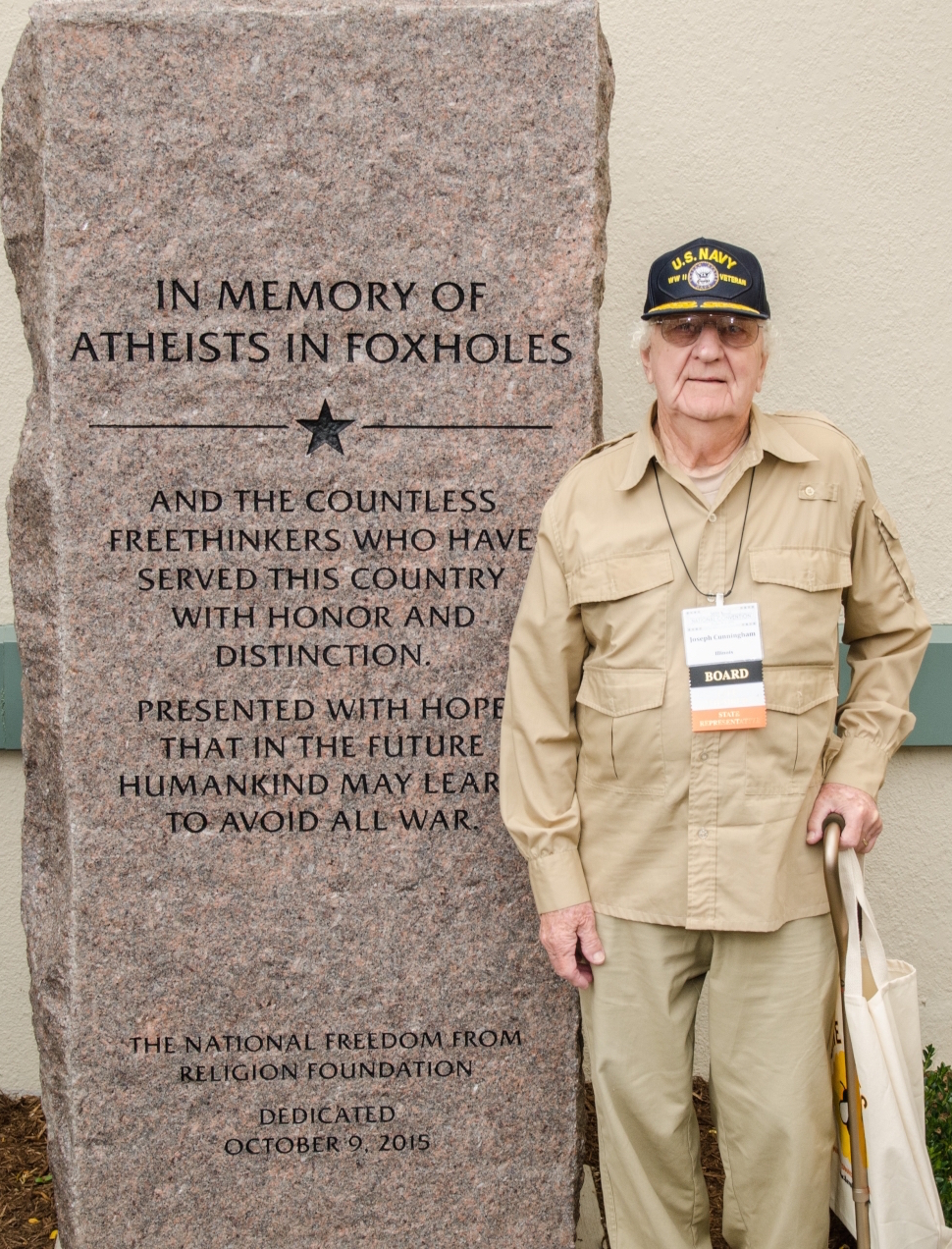
Following national protests against systemic racism, the DOD announced a multistep process to address diversity and inclusion concerns. This included an anonymous “crowdsourcing” brainstorm of the problem and possible solutions. FFRF invited its qualifying members to submit comments — and the response was overwhelming.
These true “atheists in foxholes” provided dozens of thoughtful examples of how the military could better accommodate and acknowledge nonreligious service members. About 20 percent of FFRF’s 33,000 members around the country are either active service members or veterans, dispelling the tired lie that there are “no atheists in foxholes.”
The Defense Department’s presumption of religiosity begins with the required paperwork when individuals enter the armed forces: “There was no box to check under ‘religious preference’ for ‘atheist,’” one nonreligious veteran wrote. “Instead, I checked the box ‘none,’ which was read by the clerk as ‘none of the above,’ rather than my preference being no religion.” This vet described representatives of Gideons International being invited onto federal property to distribute bibles, and being forced to sit through a Christian church sermon just before beginning basic combat training. “I vividly remember the pressure to attend religious services,” wrote another.
Enlistment oaths typically include the religious phrase, “So help me God.” “I find it almost humorous,” a service member wrote, “that the oath taken to defend the Constitution, which expressly prohibits a religious test, includes religious wording.” The proposed fix was to remove religious language from all Defense Department regulations and to return to the nation’s original motto, “E Pluribus Unum.”
Some went for church services only because the alternative was a work detail for those who didn’t attend. Recalled one nonreligious vet: “I chose to do the work detail instead of repeating the church nonsense. … Peeling potatoes allowed me to sit alone and to avoid the circus at the church. It was much better.” Others noted that bibles were placed in drawers at military temporary housing.
Another FFRF veteran made the alarming disclosure that he did not re-up because “there was so much Christian Nationalist evangelism [in my branch of the U.S. military] that I was often scared for my own safety. There was always pressure to toe the line to keep the military nonsecular. It was for this reason that I could not continue serving in the U.S. Armed Forces.”
In addition to cataloging myriad examples of the military’s mistreatment of nonreligious service members, respondents offered many concrete, constructive suggestions on steps the military could take to address this widespread problem. The most common ones were regarding religious chaplains in the military.
“Begin commissioning humanist chaplains,” recommended one respondent. This was echoed by another individual who suffered from PTSD and had “nobody to talk to” other than religious chaplains. “Consider something else besides preachers!” they urged the department.
Yet another FFRF member who is a veteran exhorted more bluntly: “Do away with the chaplains.” A nonreligious vet asked rhetorically, “If we are going to spend the kind of money required on salaries for military chaplains who are officers, why not just spend it on better, formally trained counselors?” He suggested that lay members for various faiths within the military community could attend to most religious functions during off-duty hours.
Many urged that atheism be destigmatized in the military. “Commanders should establish command policy letters that not only prohibit discrimination against other protected categories, but also expressly prohibit harrassment or criticism of agnostics, atheists and freethinkers,” they opined.
Other suggestions included ensuring that officers avoid religious speech when addressing subordinates, promoting “the importance of science as a resource to understand our challenges,” “supporting inclusion and diversity whenever you can,” and “elevating minorities, as they have a significant contribution to make to our society and tend to be marginalized, which reduces their impact.”
FFRF has erected two monuments to atheists in the military, one in front of its national office in Madison, Wis., and the original at Lake Hypatia, Ala., both of which read:
In memory of atheists in foxholes and the countless freethinkers who have served this country with honor and distinction. Presented by the national Freedom From Religion Foundation with hope that in the future humankind may learn to avoid all war.

